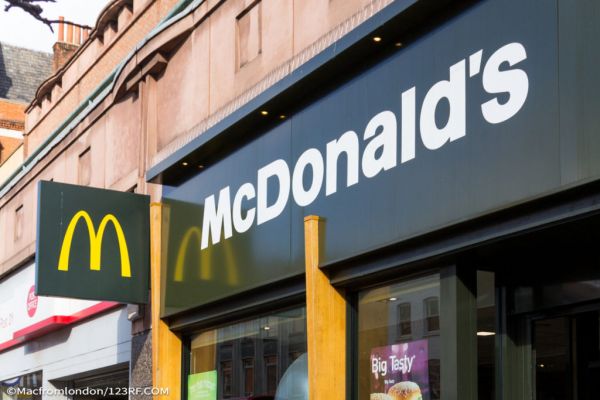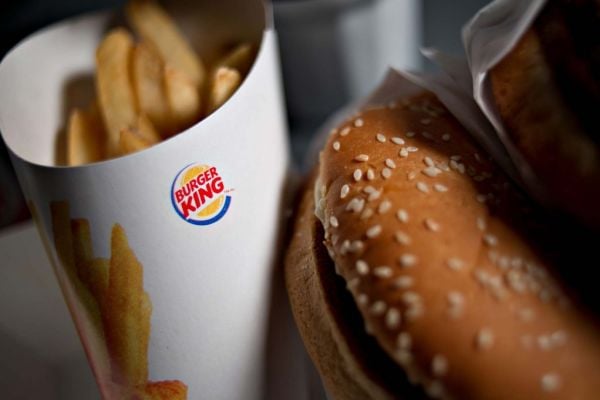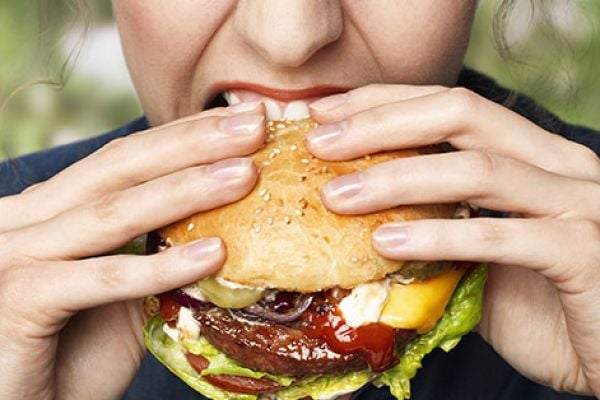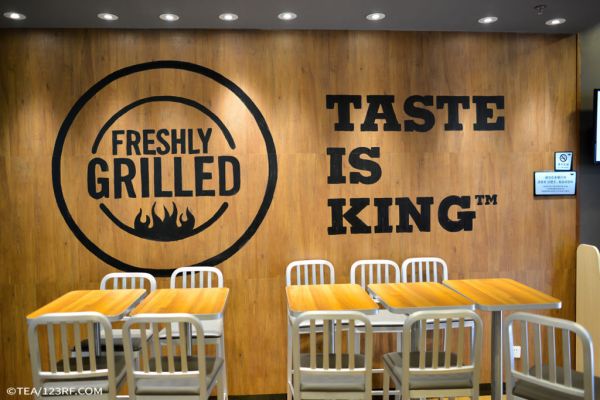Hospitality Ireland presents a round-up of global hospitality venue, drinks and food news.
Dubai's Al Habtoor Plans Share Offering In Q3 2022 - Al Arabiya TV
Al Habtoor Group plans to list up to 35% of its shares in an offering planned for the third quarter of 2022, the chairman of the Dubai-based family-owned conglomerate said in an interview with al-Arabiya TV on Wednesday November 17. Occupancy at hotels operated by the group exceeds 90%, he said, and the current situation makes it favorable to list on the Dubai financial market.
EU Proposes Law Preventing Import Of Goods Linked To Deforestation
The European Commission proposed a law on Wednesday November 17 aimed at preventing the import of commodities linked to deforestation by requiring companies to prove their global supply chains are not contributing to the destruction of forests.
Failure to comply could result in fines of up to 4% of a company's turnover in an EU country.
The law proposed by the European Union's executive body sets mandatory due diligence rules for importers into the EU of soy, beef, palm oil, wood, cocoa and coffee, and some derived products including leather, chocolate and furniture.
Many European companies operate in countries where environmental abuses are rife, but there is currently no EU-wide requirement for them to find and fix risks to the environment in their global supply chains.
Emissions from the land-use sector, most of which are caused by deforestation, are the second major cause of climate change after the burning of fossil fuels, and world leaders agreed at this month's COP26 summit to end deforestation by 2030.
"To succeed in the global fight against the climate and biodiversity crises we must take the responsibility to act at home as well as abroad," EU climate policy chief Frans Timmermans said.
"Our deforestation regulation answers citizens’ calls to minimise the European contribution to deforestation."
If the law is approved by EU governments and the European parliament, companies operating in the 27-nation EU will have to show the commodities specified were produced in accordance with the laws of the producing country.
They will also have to show the commodities were not grown on any land deforested or degraded after Dec. 31, 2020, even if it is legal to produce there according to producing country law.
"The deforestation regulations we are putting on the table are the most ambitious legislative attempts to tackle these issues worldwide ever," said EU environment commissioner Virginijus Sinkevičius.
The Commission hopes the law will be passed by 2023, with large companies given a 12-month grace period to comply and smaller ones a 24-month grace period.
The European Commission proposed the law be reviewed and updated regularly, making it possible to add other commodities and products.
"The EU draft anti-deforestation law represents a major leap forward in the fight to protect the world’s endangered forests," said Nico Muzi, Europe Director of environmental group Mighty Earth.
But he said the law needs strengthening as it leaves out natural ecosystems such as savannahs, wetlands and peatlands and fails to target rubber, which poses a big risk to forests.
The proposed law will require companies in the EU to collect geographic coordinates showing where commodities they buy were produced, and to monitor these locations for forest loss via satellite images.
Nicole Polsterer, campaigner at NGO Fern, welcomed the law but added: "While today is a big step forward, the drivers of deforestation will remain as long as other markets exist for these tainted goods."
From 1990 to 2020, the world lost 420 million hectares of forest, according to the United Nations' Food and Agriculture Organization.
Nestle Aims To Nearly Double Sales Via E-Commerce By 2025
Nescafe maker Nestle on Wednesday November 17 said it expects to nearly double its e-commerce sales to 25% of its group total by 2025 by stepping up marketing and technological investments.
Nestle will push sales of its products to consumers directly via its own online channels, or direct to consumer, Nestle CEO Mark Schneider said, building on the success of Nespresso coffee pods and Purina PetCare, which are increasingly being sold directly to consumers via Nespresso.com and Purina.co.uk.
"We plan to take (e-commerce) sales from about 13% in 2020 to 25% by 2025," Bernard Meunier, head of Nestle's strategic business units and marketing and sales, said at a virtual investor summit.
This will be achieved by increasing digital marketing investment to 70% by 2025 from 47% in 2020, Meunier added.
The KitKat chocolate maker did not provide details of the size of the investment, which will be funded through self financing and savings. So far, Nestle's e-commerce investments have not been dilutive to the business, the company said.
Nestle's total sales in 2020 were 84.34 billion Swiss francs ($90.71 billion). E-commerce sales represented 14.1% of the total in the first nine months of 2021, compared with 12.8% in the same period in 2020.
Meunier said e-commerce sales growth will be driven by markets such as the United States, Europe and China.
Big food manufacturers are seeking to sell more of their products to consumers directly partly to gather data on shopping habits. Also, Apple Inc and Alphabet's Google are taking steps to prevent advertisers from tracking user data without their consent, forcing companies to seek new avenues.
Nestle said its investment would generate 400 million first-party data points - information collected directly from consumers - that will feed into an analytics system to predict out-of-stocks and where sales can be boosted. The company currently collects about 205 million data points.
The digital marketing investments will also be used to add more employees and expand the company's in-house studios for advertising instead of relying on digital agencies.
"In a world where there is no rule book to follow, a lot of learning has been done already and we are looking forward to the next phase," Schneider said.
Danone To Switch Dairy Factory To Plant-Based Alpro As Diets Shift
France's Danone, the world's largest yoghurt maker, plans to switch one of its big French factories to plant-based drinks next year in a bet on fast-growing non-dairy milk alternatives.
Danone said in a statement on Wednesday November 17 it will invest €43 million in 2022 to convert its Villecomtal-sur-Arros dairy plant in southern France into a production site of mainly oat-based drinks for its Alpro brand.
This follows a €16.5 million investment this year in its Alpro plant in Issenheim, eastern France.
Danone, owner of the Evian water and Activia yoghurt brands, said the French market for plant-based foods has tripled in seven years and should grow another 50% by 2025.
"We observe consumers' interest in plant-based recipes, which are a simple solution for those who want a more varied and diversified diet," Danone France's François Eyraud said.
The factory will be converted in the autumn of 2022 and make its first Alpro-branded drinks from the second quarter of 2023.
Danone acquired Alpro in 2017 via its $12.5 billion acquisition of U.S. organic food producer WhiteWave as it tried to capitalise on healthier eating trends.
In February, Danone agreed to buy U.S. plant-based foods specialist Earth Island, in a deal that would help it reach a target of generating €5 billion of plant-based sales worldwide by 2025.
Deliveroo Encouraged To Seek More Partners By Hop Grocery Trial
Deliveroo has seen a "really encouraging" response to its Deliveroo Hop dark-store rapid grocery trial, and said it would explore more partnerships with retailers using the model.
Deliveroo said in September it was working with British supermarket group Morrisons, one of its existing partners, to offer 1,500 to 2,000 SKUs (stock keeping units) from a site in London.
Chief Executive Will Shu said on Wednesday November 17 Deliveroo Hop was achieving an average delivery time of 11 minutes.
"The early sort of numbers we've seen on retention and frequency, albeit given it's about two months, have been really encouraging, so we'll be exploring more and more partnerships with different grocers on this model," he told the Morgan Stanley European Technology, Media and Telecoms conference.
The rapid grocery delivery sector has snowballed in major cities like London in the last 12 months, with companies such as Getir, Weezy and Gorillas battling to deliver orders.
Deliveroo started offering grocery delivery about three years ago, initially in partnership with retailer Co-op, using a model whereby the retailer picks and packs orders in their stores and Deliveroo's riders deliver them in 20-25 minutes.
It has since partnered with other major retailers, including Waitrose, Morrisons, Sainsbury's and Aldi in Britain and Carrefour in France, Italy and Belgium.
Shu, however, said the dark store model was compelling for a number of reasons including better inventory accuracy than a high street store and faster delivery.
"We've had almost no stock outs or substitutions, which I think was the critical thing," he said.
Takeaway CEO Says He Wants Partnerships, Not Sale, For Grubhub
Food delivery company Just Eat Takeaway.com has no plans to sell its U.S. subsidiary Grubhub, the company's chief executive said on Wednesday November 17, but it is actively looking for strategic partnerships for the business.
Takeaway bought Grubhub for $7.3 billion in June, but has since faced calls from investors to sell it due to competitive pressures in both the U.S. and at its core European operations.
"Anything that strengthens the business, we'll look at it," CEO Jitse Groen said, including partnerships with logistics companies or major U.S. grocery chains.
Groen, who was speaking by video link at the Morgan Stanley TMT conference, said the company, Europe's largest in meal delivery, expects to announce partnerships in grocery delivery in several markets "very quickly."
"We're going to be very big in grocery," he said.
Groen said he is confident Takeaway can defend its market share in Germany from competitors including Doordash, which last week entered European markets with an $8 billion acquisition of Finland-based food delivery company Wolt.
AB Inbev Bets On New Barley Variants To Boost African Beer-Making Capacity
South African Breweries (SAB), part of Anheuser Busch InBev, is betting new drought-resistant barley varieties will help it maintain record annual production in its major domestic beer market and meet demand elsewhere on the continent, officials said.
The world's largest brewer is betting hi-tech natural cultivars and enhanced farming techniques in Africa will eliminate barley and malt shortages dampening expansion plans.
"No barley, no beer. So, absolutely critical to have a sustainable supply chain of barley," said Josh Hammann, Africa director for agriculture development and sustainability at AB InBev in Africa.
Scientists say dryer conditions in South Africa due to global warming could diminish barley production in Caledon, the country's main growing area, where AB Inbev also converts barley into malt at its flagship 180,000 tonne factory.
Malt is currently imported from Europe only when local production volumes do not meet quality parameters or if there is a crop failure due to drought. But, the long-term plan is to eventually export larger quantities of malt as barley harvests yield more, with Africa the main export target market, said company officials.
By using drought-resistant barley and improved agronomics, Hammann said AB Inbev surpassed a target of reaching 475,000 metric tonnes of barley output by 2021, with a record harvest of 560,000 tonnes achieved in the 2020 season when rains were good.
"It's very important for us as AB Inbev to localise our production and our raw materials... to help mitigate against global risks," Hammann told Reuters at a barley research farm in Caledon, about 110 km (68 miles) from Cape Town, where wind-swept barley fields ripening for October's harvest stretch as far as the eye can see.
Researchers are also experimenting with new maize, sorghum and cassava crop cultivars to meet burgeoning spirit brewing prospects in Tanzania, Uganda and Mozambique. Scientists are excited about their latest barley cultivar, Kadie, which has a high-yield potential, a high percentage of kernel plumpness and ripens quicker than other varieties in dry lands.
"It's quick, it's short and has the X-factor," Daniel de Klerk, a barely breeder at the research institute, said of the new variety. Kadie might be considered for use in Budweiser and if successfully tested could become the first African barley variety used for the popular American brew, officials said.
Britain's M&S To Sell Food In Costa Coffee Stores
British retailer Marks & Spencer has struck a deal to sell some of its food products in Costa Coffee outlets, the companies said on Thursday November 18.
They said that from spring next year over 30 M&S food products, including sandwiches and salads, will be available in over 2,500 Costa Coffee stores across the United Kingdom as well as via drive-thru lanes.
Costa, owned by Coca-Cola Co, is Britain's largest chain of coffee shops.
M&S said the move supported its strategy to make the retailer "more relevant, more often for families".
Last week, M&S beat forecasts for first-half profit and upgraded its earnings outlook for the second time this year, sending its stock soaring on bets that one of Britain's most elusive turnarounds could finally materialise.
Shares in M&S were up 2.1% at 0954 GMT on Thursday November 18, extending 2021 gains to 71%.
UK Crisp Shortage Continues At One In Three Stores
Crisps remain in short supply in almost one in three British shops, according to figures released by the Office for National Statistics following production difficulties at a major supplier.
Britain's biggest crisp producer Walkers, part of PepsiCo , had to scale back production of the popular potato snack at the start of the month after problems with an IT systems upgrade, which it warned could take weeks to fix.
Some 4% of shops visited between Nov. 12 and Nov. 15 had no multipacks of crisps for sale, while 26% had only limited supplies, according to market research by Kantar Public, published by the Office for National Statistics.
Britons each eat on average two packets of crisps a week, Kantar said.
Frozen turkeys - which were the scarcest product last week, when Kantar did not look into crisp supplies - had no or low availability at 15% of shops.
The poultry industry, which has suffered from shortages of workers due to post-Brexit immigration restrictions and COVID-19, said on Monday there would be enough whole turkeys for Christmas but a limited range of other products.
Britain, like other Western economies emerging from the COVID-19 pandemic, has suffered sporadic shortages of specific goods in recent months. But problems in Britain have been exacerbated by Brexit, which limits the ability of employers to hire workers from mainland Europe - most visibly last month when there were long queues at petrol stations.
Separately, the ONS said consumer spending on credit and debit cards fell slightly to 101% of its pre-pandemic average in the week to Nov. 11 from 105% the week before, according to non-seasonally figures from the Bank of England.
The weekly data release showed little change in the volume of online job advertisements or restaurant reservations, which are both above pre-pandemic levels.
Starbucks Links With Amazon Go For First Cashier-Less Cafe
Starbucks Corp's newest cafe lacks one element most customers are used to seeing: cashiers.
The global coffee chain on Thursday November 18 opened its first ever location in partnership with Amazon Go, the e-commerce giant's brick-and-mortar convenience store, where customers can sit at a table with a latte or grab a sandwich from a shelf and walk out.
Hit by a U.S. labor crunch, Starbucks and other companies are expanding labor-saving technology like artificial intelligence, robotics and digital touch screens.
White Castle is testing a robotic fry cook and Domino's Pizza Inc is experimenting with self-driving vehicles for delivery. IBM is developing automated order taking for McDonald's Corp drive-thrus.
U.S. restaurant staffing levels broadly are still at least 10% lower than before the pandemic, helping boost margins, said Rabobank analyst Tom Bailey.
"You'd see some of the digital automation tools deployed to cover that 10% gap as they grow," he said.
The pandemic pushed people to place more orders online for carry out, delivery and drive-thru. To keep up, Starbucks shifted its development strategy to new store formats, adding pickup-only locations in urban areas, as well as traditional cafes and suburban drive-thrus.
Starbucks and Amazon plan to open at least two more U.S. locations together in 2022, said Kathryn Young, Starbucks' senior vice president of global growth and development.
Starbucks baristas will make drinks and the rest of the chain's menu at the new location in New York City, which will have the same staffing level as any other Starbucks, she said.
Customers can order through the Starbucks app and grab coffee to go from a counter near the door. Or they can use a credit card, Amazon app or Amazon One palm reader to enter the rest of the space, take snacks from shelves, or sit at tables.
French Wine Lovers Wash Away Climate And COVID-19 Worries With New Beaujolais
French wine lovers washed away the misery of months of coronavirus social distancing and a wet summer that weighed on wine output, welcoming the new Beaujolais in bars across the country.
Every autumn on the third Thursday of November, wine growers from the Beaujolais region market the first bottles of the year's harvest in the annual "Le Beaujolais Nouveau est arrivé" campaign that started in the 1960s.
"If there is one day we can call a day of renaissance, after all the crises we have lived through, it is today," said Le Mesturet owner Alain Fontaine as he served free glasses of Beaujolais on the sidewalk in front of his Paris restaurant.
Parisians loved the free wine, even if Beaujolais - a light red wine that is just a few weeks or months old - struggles to overcome an image of being cheap plonk.
"It's a nice little wine. It's not the biggest grand cru, obviously, but it is pleasant and not very expensive," said Felix, an employee at the French national library.
Wine growers were less upbeat as France is set to produce its lowest wine output since records began, after vineyards were hit by spring frost, hail and disease.
The farm ministry has forecast total production a quarter below the average of the past five years with the Burgundy-Beaujolais region's output among the worst hit, seen down by nearly half.
"The year has been quite hard weather-wise and the grapes have required more manual work than usual, only for us to end up losing around 30% of the harvest. That's too much work for such meagre results," said Beaujolais Nouveau winemaker Julien Revillon in Villie-Morgon, north of Lyon.
Revillon said that even though output has been disappointing, people are more than ever attached to the Beaujolais tradition, seeing it as an opportunity to get together with friends and colleagues after months of isolation.
"In difficult periods, people hang onto traditions. Even during a war, we want to celebrate Christmas, even during a pandemic, we want to celebrate the Beaujolais Nouveau," he said.
Ninety-year-old Parisian Marie-Francoise, who initially found the new Beaujolais too tart, changed her mind after a second tasting.
"It’s a good wine, a very good wine. There is no better Beaujolais!" she said.
Salad Chain Sweetgreen Valued At $5.5bn As Shares Soar In New York Debut
Sweetgreen Inc was valued at $5.53 billion after shares skyrocketed 86% in their New York debut on Thursday November 18, as investors embrace companies that focus on healthy and environment-friendly food.
Much of the demand is being fueled by millennials and generation Z consumers, who are more than willing to spend on sustainable products that are also healthy.
Sweetgreen's shares opened at $52, compared to the IPO price of $28 a share, which was well above its targeted price range of between $23 and $25.
The Los Angeles, California-based company raised $364 million on Wednesday November 17, selling 13 million shares in an upsized initial public offering, compared with its original plan of 12.5 million.
Founded by three college graduates in 2007, Sweetgreen operates 140 restaurants in 13 states in the United States. It offers "earth-friendly" meals made with seasonal and locally-sourced ingredients.
The company's revenue rose to $243.4 million in the nine months ended September from $161.4 million a year earlier, while loss narrowed to $87 million from $100 million.
E-commerce channels accounted for 68% of Sweetgreen's total revenue in the last 12 months.
Eleven food and beverage companies went public so far this year to raise nearly $3.83 billion, Dealogic data showed, as firms tapped a boom in the IPO market.
Greek yogurt maker Chobani on Wednesday November 17 made public its paperwork for an IPO that Reuters reported could value the company at over $10 billion, while plant-based burger maker Impossible Foods Inc is also preparing for a listing.
Goldman Sachs and J.P.Morgan were among the lead underwriters for Sweetgreen's IPO.
Colombia Financial Regulator Approves Purchase Of Stake In Nutresa
Colombia's financial regulator has given the green light for a majority takeover of food processor Nutresa, according to a source close to the operation and Colombia's stock exchange.
With the authorization of the financial regulator bidder Nugil SAS, which is controlled by Grupo Gilinski, will be free to negotiate with Nutresa's shareholders.
Nutresa, Colombia's largest processed food producer, received an offer to acquire between 50.1% and 62.62% of its circulating shares, with an offer price of $7.71 per share.
Depending on how many shares are bought, the deal would see a value of $1.77 billion to $2.22 billion, according to Reuters calculations of stock market data.
The approval came after Nugil SAS registered a guarantee worth $1.08 billion to fund the purchase to Colombia's stock exchange.
The guarantee has the backing of conglomerate Royal Group, whose chairman is Sheikh Tahnoun bin Zayed Al Nahyan, a brother of the de facto ruler of the United Arab Emirates.
Nutresa operates around Latin America, as well as in the United States and Malaysia. It makes processed meat, cookies, chocolate, coffee, pasta and ice cream and has a line of restaurants and ice cream shops.
Among its top shareholders are conglomerates Grupo SURA, Grupo Argos and pension fund Porvenir.
Trading in Nutresa shares was suspended following the offer on Nov. 11, though trading could restart on Monday November 22.
Saudi Pilgrimage Sites Developer To Restructure $800m Government Loan
Jabal Omar Development Company, one of Saudi Arabia's largest listed developers, said on Sunday November 21 it agreed to restructure a 3 billion riyals ($799.91 million) loan it owed to the government as part of plans to fix its finances.
The company, which runs the Jabal Omar complex of hotels and property within walking distance of the Grand Mosque in the Muslim holy city of Mecca, was hit hard when the coronavirus outbreak reduced pilgrimages.
On Sunday November 21, it said it received approval from the Saudi ministry of finance to restructure a 3 billion riyals Islamic loan it received in 2011.
"This agreement will have several immediate and significant long-term positive impacts on the Company’s financial position, enabling it to accelerate the pace of development of its Jabal Omar masterplan and support the government’s efforts in achieving its goal of welcoming 30 million pilgrims by 2030," it said in a statement.
Half of the facility will be converted into an Islamic subordinated perpetual debt instrument, while the other will be extended to 2031 from its previous 2022 maturity.
The deal also includes a waiver of accrued loan payments and lower rates for the extended debt.
Jabal Omar embarked on a plan this year to fix its heavily indebted balance sheet which would see it restructure more than 15 billion riyals in liabilities by next year.
Earlier this month it said quarterly losses had deepened as the pandemic continued to have an impact on revenues.
JPMorgan Grants Hong Kong Staff Up To $5,000 For Hotel Quarantine
JPMorgan Chase & Co is offering to pay some of its Hong Kong-based staff up to $5,000 each for their hotel quarantine stay for personal trips, a memo from the Wall Street bank to employees seen by Reuters showed.
The move, likely the first such announced by a financial institution in the city, comes as the Asian financial hub's COVID-19 measures, some of the strictest in the world, are said to hurt businesses.
It comes after Jamie Dimon, the bank's chief executive, visited Hong Kong last week for 32 hours after he was given a government exemption from quarantine.
The memo said staff at the executive director level and below would be entitled to the one-off payment for a single quarantine stay in Hong Kong.
The program will run from December 1 to November 2022 and is for staff returning from visiting immediate family members overseas, the memo said.
"We recognize that the costly quarantine measures in place in Hong Kong associated with COVID-19 have impacted many of you with respect to visiting family and loved ones overseas," the memo said.
A JPMorgan spokesperson confirmed the contents of the memo, which was first reported by the South China Morning Post on Monday November 22.
Hong Kong's current rules stipulate returning residents and visitors from most countries must spend two to three weeks in hotel quarantine paid for by themselves.
The Chinese-ruled city has registered barely any new infections in recent months but the government is keeping strict rules in place and closed borders.
Hong Kong has recorded 12,402 cases during the pandemic while the double dosed vaccination rate stands at 66.8% , according to a government website.
Tight rules have been hitting Hong Kong's largest businesses, and financial lobby groups have urged the government to consider relaxing some of the quarantine measures.
Cathay Pacific staff released from compulsory quarantine on the weekend after they were deemed close contacts of three pilots who were infected with COVID-19 during a layover in Germany.
For Brazil Co-Op, Price Of First Carbon-Neutral Coffee Is Sweet
A Brazilian coffee co-op received a price premium in its first sale of a batch of carbon-neutral arabica coffee that was near double that a product certified as sustainable but not carbon-neutral would achieve, officials at the company said.
In its first shipment of its kind, through coffee trader Volcafe with Japan the final destination, Brazilian coffee co-op monteCCer sold 300 60-kg bags of coffee for around 100 reais ($17.89) per bag more than it would receive by selling regular certified coffee.
Regis Damasio Salles, a director at monteCCer, said that five other deals were about to be closed with similar gains in price. A large U.S. coffee retailer, which he did not name, is among the interested buyers.
Because coffee plants are perennial, coffee plantations serve as carbon sinks that remove carbon dioxide from the air.
In the project developed by monteCCer, a group of farmers followed techniques to further reduce emissions, resulting in a harvest that is neutral or even negative in terms of carbon emissions.
The techniques included more efficient use of fertilizers, particularly nitrogen-based, the use of biological products rather than chemicals and reduced use of power and water, with advanced irrigation, such as underground dripping systems.
Brazil's NGO Imaflora was one of the advisers for the program under which 34 farms in the Cerrado region in Minas Gerais produced coffee that was neutral or carbon negative.
Those farms produce around 160,000 bags of coffee, a relatively small volume compared with the total Brazilian production of nearly 50 million bags in 2021.
At United Nations talks in Britain this month to try to slow global warming, Brazil said it was raising its climate commitments, although the evidence so far is that President Jair Bolsonaro has not halted destruction of the rain forest.
Caterer Compass Rises On New Business Appetite
The chief of Compass Group said on Tuesday November 23 new business, especially from clients outsourcing their kitchen needs for the first time, will help the British caterer regain its pre-pandemic size and grow faster than before.
Shares in the world's largest catering company reversed early losses to trade up 3% following the comments from Chief Executive Dominic Blakemore on an earnings call.
"The pipeline is exceptional ... we've got the digital and climate offers to win with the balance sheet to exploit all of these opportunities," Blakemore said in a call with analysts after the group reported better-than-expected annual profit and resumed dividend payments.
Compass guided to an underlying operating margin of more than 6% for fiscal 2022, just below average analysts' forecast of 6.5%. The outlook had sent shares falling 2.5% in early trade.
Food catering volumes picked up from pandemic lows, as students returned to universities and schools, sports fans filled stadiums and crowds attended events again. Fourth-quarter revenue recovered to 88% of 2019 levels.
The company said it would return to pre-pandemic margins of about 7% by the end of the fiscal 2022 year, although revenue and volumes would not exceed 2019 on a full-year basis until 2023.
"All in, we would say this is a solid print with the most positive message on how they will exit 2022," Bernstein analyst Richard Clarke said.
Blakemore said the group was varying menu choices and substituting products experiencing high levels of inflation to mitigate some pressures.
"We are seeing a trend towards local sourcing in many of our markets because of the disruptions in supply chain," he told Reuters.
Net new business wins totalled a record £2.1 billion, approximately half of which were from companies outsourcing for the first time to cut costs, it said.
Compass' underlying operating profit rose 55% to £811 million, versus analysts' average view of £797 million.
Compass, which suspended dividends in April 2020, said it would pay an annual dividend of 14 pence per share.
News by Reuters, edited by Hospitality Ireland. Click subscribe to sign up for the Hospitality Ireland print edition.









